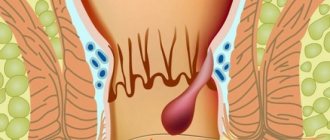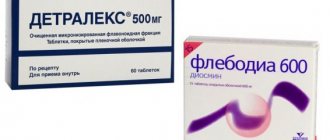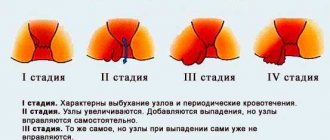A disease such as hemorrhoids is not at all considered simple, because even in a mild initial form it can quickly progress and cause serious complications. As a rule, treatment of hemorrhoids can be done either independently at home or under the supervision of a doctor. For this purpose, the doctor can prescribe different tablets and topical medications, but the recovery process will be influenced not only by the effectiveness of the drugs, but also by the individual characteristics of the patient’s body.
How many days does it take to treat hemorrhoids?
Treatment of hemorrhoids involves the use of various medical techniques and modern medications of various forms, which the doctor prescribes to the patient in an individual form. The method and duration of treatment, as a rule, depends on the form and type of the disease, its overall complexity, as well as the patient’s health condition and the characteristics of his body. At the initial stage, hemorrhoids are treated quite simply and quickly; the course of treatment takes no more than 7-10 days and can be carried out at home without the supervision of a doctor.
The duration of the course of treatment, as well as the final result, will depend on the type of disease itself. Please note that internal and combined hemorrhoids are considered a more serious form of the disease and require complex treatment from a proctologist.
In the case of acute or chronic forms of hemorrhoids, treatment takes a longer period, from several weeks to several months, and should only be carried out under the supervision of a proctologist. Treatment of hemorrhoids in pregnant women and after the birth of a child is prescribed individually and the duration will depend only on the patient’s body.
Hemorrhoids in women giving birth
The attending physician often detects hemorrhoidal neoplasms in women after childbirth. This is the most common complication of the early postoperative period. The pathology is based on blood stagnation in the pelvic organs. This happens due to the stress of carrying a baby and the intense stress of childbirth.
It is easy to cure this disease, since the acute form goes away on its own against the background of general recovery of the body after childbirth. To do this, just follow a few rules:
- add fiber to food (this will prevent stagnation of feces and constipation);
- increase your drinking ration;
- maintain an active lifestyle;
- add daily moderate exercise;
- walk in the fresh air more often;
- during an exacerbation, you need to avoid eating irritating foods (sour, spicy, salty);
- take some time to do exercises to strengthen the walls of the anus (for example, using the Kegel technique);
- do not endure the first urge to defecate (the delay period threatens hardening of the stool and the appearance of constipation).
At the first signs of discomfort after childbirth, you should consult a specialist. In the early stages, women in labor are prescribed conservative therapy with medications. Warm baths, applying ice to irritated areas, and using wet wipes instead of toilet paper are recommended. Rectal suppositories are sometimes used. In case of severe pain, anti-inflammatory drugs (Ibuprofen) are added to standard therapy. It has been proven that if you are treated, following all the doctor’s requirements, the symptoms of hemorrhoids will disappear within a few weeks.
Exacerbation of chronic hemorrhoids in women in labor cannot go away on their own. Patients complain of severe itching and burning in the anal area. In severe cases, nodes begin to fall out and bleeding appears. During lactation, the use of many medications is prohibited. Aggravated hemorrhoids can calm down after prescribing rectal suppositories and ointments for topical use. Treatment of hemorrhoidal tumors during pregnancy is very limited and takes little time. Therapy must be coordinated with a doctor.
What does treatment depend on?
Typically, hemorrhoids appear gradually and in most cases have a chronic form, so it is unlikely that the disease can be cured completely in a few days. Complex treatment of hemorrhoids depends on many factors, which in one way or another can affect the final result of treatment.
The main factors influencing the duration and form of treatment include:
- type of hemorrhoids - external hemorrhoids are the easiest to treat, since in this case the bumps form on the outside of the anus and the inflammation is easy to get rid of, internal hemorrhoids require long-term treatment using tablets and suppositories, the combined form is usually treated only by surgery;
- form of severity of the disease - the longer the treatment of the disease is delayed, the more difficult it is to get rid of the disease; in the early stages it is much easier to eliminate unpleasant symptoms; the aggravated form requires long-term outpatient treatment;
- the patient’s body – state of health, existing diseases, hypersensitivity and allergies can affect the duration and method of treatment of hemorrhoids, as well as delay the recovery process;
- age group of the patient - the older the person, the more difficult the form of hemorrhoids and its treatment may be; at the age of 40-50, the disease can be accompanied by more serious symptoms and an aggravated condition; there are often cases when in old age hemorrhoids give complications and stimulate other diseases.
In addition, the duration of recovery is influenced by compliance with the doctor’s treatment instructions and the chosen treatment method itself.
How long does it take for external hemorrhoids in women to go away if left untreated?
To answer the question of how long it will take to be treated for hemorrhoids, you need to find out how the recovery process occurs. Effective medications relieve symptoms and reduce inflammation. As a result, the size of the nodes decreases. When using tablet drugs, the therapeutic effect is achieved at the systemic level; it is not the symptom itself that is eliminated, but the cause. Often this is the treatment of an infection that is removed with topical medications, ointments or suppositories. Drugs that improve venous blood flow are often prescribed. They reduce capillary permeability, eliminate venous congestion, stimulate lymph outflow, and improve tissue healing.
How long does it take for external hemorrhoids in women to go away if left untreated?
- To determine how much time will have to be spent on therapy, you need to know the stage of the disease. At the first stage there are no changes in this area. Usually there is a slight increase in the nodes inside, which are difficult to detect without palpation by a doctor. Periodic bleeding may occur. At the second stage, the nodes increase slightly, may fall out during defecation, but then reset on their own. At the third stage, the nodes fall out, but it is not possible to set them on your own. At stage 4, the nodes do not move back into place, constantly bleed, cause discomfort and pain.
- At the initial stage, there are no bright manifestations; nothing is visible from the outside. However, you may experience slight discomfort, a burning sensation, and some blood in the stool.
- Usually the first stage is not a reason to see a doctor. Accordingly, the disease becomes chronic due to lack of treatment. In this state, the nodes can remain at rest for a long time and not manifest themselves. There are usually no acute, painful sensations at the initial stage of the course. Treatment is carried out at home; patients choose medications at their own discretion. When choosing the right drug, the pain goes away after a few days, and the blood in the stool disappears. The disease develops further, but is asymptomatic.
- This is the wrong approach, since when the first symptoms are detected, complex treatment is necessary, which involves the use of not only local drugs, but also tablet medications. In this case, it is necessary to adhere to the rules, it is worth giving up heavy physical work, and including foods that contain a lot of fiber in the menu, so as not to provoke constipation and diarrhea. After all, it is the disturbance of stool that causes problems with hemorrhoids. Please note that you should not use traditional methods to treat hemorrhoids, so you can help me, but harm me.
Pain
Types of hemorrhoid treatment and duration
The strategy and method of treatment, as a rule, is chosen only by the attending proctologist, based on the indications and examination of the patient. Today, there are several common methods of treating hemorrhoids. Treatment methods can be divided into three categories: medicinal, surgical, and folk.
The most common and effective is medication treatment, which includes the following:
- rectal suppositories;
- pills;
- ointments, gels, creams.
Traditional methods of treatment are often used only at the initial mild stage of the disease and give a temporary effect, while medications require longer use, but can cure the cause of the disease. Surgical intervention is used exclusively in particularly severe chronic cases.
Duration of treatment
It is possible to cure an acute form of the disease. It is impossible to say how long a patient’s hemorrhoids are treated. There are many reasons why the problem does not go away; a person continues to get sick despite proper treatment.
Conservative therapy
When prescribing drug therapy, the average course duration is 10-14 days. In severe, advanced cases, the course lasts up to 30 days. The duration of exposure to medications ranges from 3 days to several weeks.
After completing the course of therapy, the patient’s pain, signs of inflammation, itching, and burning disappear. How long it takes for hemorrhoids to go away after treatment depends on the stage of development of the disease.
Minimally invasive treatment methods
Conservative methods distinguish a group of minimally invasive intervention methods - non-surgical treatment.
- Sclerosing therapy - a special substance is injected into the cavity of the node using a thin needle, causing the walls of the enlarged node to stick together.
- Infrared coagulation of the node.
- Ligation of the node using special latex rings.
- Laser coagulation.
Laser removal of hemorrhoids
The procedure takes a short period of time and requires time for rehabilitation. The exact duration of inpatient treatment is determined by the proctologist individually. The average length of hospitalization is 10 days. After a couple of days, the patient gets rid of the unpleasant symptoms inherent in hemorrhoids. While therapy and rehabilitation are ongoing, the patient is required to adhere to a gentle diet and avoid physical activity.
Drug treatment - types and duration
Medications at the initial and progressive stages help to quickly relieve symptoms and suppress pain. The effect and speed in this case will depend on the form of the disease and the medicine. Suppositories and ointments give a quick effect, which manifests itself after 2-3 days of use. During this period, suppositories help improve metabolic processes in the colon and kill bacteria, but the full therapeutic effect will appear only after 6-7 days of use.
Many patients want to know exactly how many days it takes for a hemorrhoid to go away, but neither doctors nor pharmacists can tell you the exact duration of treatment, because it is completely individual for each person.
Tablets and capsules for hemorrhoids are usually prescribed for the internal type of the disease; they fight infection and eliminate inflammation. The first improvements are noticeable after 2-4 days of use. The complete process of healing and restoration of damaged colon tissue in initial and moderate forms of severity takes up to 10 days.
How long does it take to cure hemorrhoids?
No doctor can give a clear answer without a preliminary examination and clarification of the patient’s medical history.
It all depends on concomitant diseases and the complexity of the course. How long does it take to cure hemorrhoids?
- If this is the initial stage of development of hemorrhoids, in which blood discharge appears during bowel movements, and there are no hemorrhoids, then 2 weeks are enough to relieve symptoms.
- When you choose the right drug, relief comes after a few days. It will take an average of two weeks to complete a course of treatment with suppositories or tablets. In general, drug therapy is long-term if the hemorrhoids are chronic, with fairly frequent relapses. If you maintain hygiene and use ointments and suppositories, the symptoms disappear after about three weeks.
- If drug therapy is ineffective, this indicates a chronic disease, so it must be treated with other methods. Typically, patients who have an advanced stage of the disease find protrusion of hemorrhoids, their prolapse outward. Surgical removal of the nodes is recommended.
- Recovery comes to the fore, and only then the timing of recovery. In modern conditions, the operation takes place quite quickly, but the required rehabilitation period, in the case of using minimally invasive techniques, is approximately 2 weeks. Recovery and complete tightening of the nodes occurs within two months.
Stages of the disease
Complications during treatment
Treatment of hemorrhoids, even at the initial stage, does not always go quickly and smoothly. Sometimes treatment can be accompanied by a set of complications that aggravate the condition and delay recovery.
Common complications in the treatment of hemorrhoids include:
- excessive blood loss - severe bleeding develops with inappropriate treatment and when the mucous membrane is in poor condition, in which case no treatment can be started until the bleeding can be stopped;
- proctitis and paraproctitis - a severe form of an infectious disease with purulent discharge, develops when the disease is severely neglected, complicates treatment and provokes serious pathologies;
- pinching of nodes is a serious problem with hemorrhoids; it requires only professional help, since it is difficult and dangerous to pinch the nodes on your own.
In addition, treatment of hemorrhoids can be complicated if the disease is very advanced. Therefore, it is best to resort to its treatment immediately after the first symptoms appear.
How long to treat hemorrhoids with suppositories?
You can relieve pain and reduce symptoms with the help of Heparin ointment, Troxevasin, Relief, Posterizan, Proctosan. If you are breastfeeding, you should not use dangerous drugs.
How long to treat hemorrhoids with suppositories:
- Hemorrhoids are a disease that does not go away on its own. When using suppositories, after about 5-7 days, the pain disappears and the patient calms down. However, this is the beginning of remission, but the disease still continues to develop.
- Doctors note that several decades can pass from the first drops of blood in the stool to the appearance of stage 4 hemorrhoids. However, in most cases, people are in no hurry to consult a proctologist due to embarrassment and psychological problems. Therefore, they try to solve the problem on their own, using the advice of acquaintances, friends, as well as the recommendations of the pharmacist at the pharmacy. However, time is running out, and using the treatment program that is applied at the beginning is already useless and impossible in the third stage.
- Suppositories with sea buckthorn oil, calendula and propolis are often used to ease bowel movements. They help relieve inflammation and reduce pain. On average, it may take 2-3 weeks to treat hemorrhoids with suppositories. It all depends on the severity of the patient and compliance with the rules of proper nutrition.
- On average, the course of treatment with suppositories is approximately 10-14 days. It all depends on the drug and additional agents that are used as part of complex therapy.
It is impossible to completely cure hemorrhoids using suppositories. However, you can remove the pain.
Pregnancy
Duration of treatment after childbirth and surgery
After surgical intervention and surgical removal of hemorrhoidal cones, the human body is considerably weakened and requires auxiliary measures for recovery. Typically, nodes are removed in the acute chronic form of the last stage of the disease, while the recovery period depends on the individual characteristics of the patient. Typically recovery takes 3 to 4 weeks.
Surgery to remove hemorrhoids solves the problem with the symptoms, but not the cause of the disease, and may recur a couple of years after it was performed.
In the case of hemorrhoids during pregnancy, treatment takes different periods of time. If the disease appeared and was treated during pregnancy, after the birth of the child it usually goes away within 2-3 weeks after birth. However, hemorrhoids that worsen during pregnancy can make themselves felt upon reaching 30-40 years of age.
How do hemorrhoids go?
Special medications help to effectively relieve the symptoms of the disease and reduce inflammation of the nodes. At the same time, tablets, acting at a systemic level, eliminate the infectious component in the body, while ointments and suppositories have a local effect on the bumps and skin of the anus. In addition to the indicated medications, venotropic drugs are prescribed, through which the following effects are achieved:
- capillary permeability decreases;
- venous congestion disappears;
- lymphatic drainage is stimulated;
- regeneration of damaged tissue is accelerated.
Thanks to complex drug treatment, painful anal fissures begin to gradually heal, and the skin of the anal area is restored. Venotonics help eliminate bleeding and swelling. At the same time, hemorrhoidal bumps are significantly reduced, and then completely disappear. At the second stage of the disease, when there are no external nodes, ligation of internal formations is prescribed. During this procedure, the stem of the cone is pinched, as a result of which the latter dries completely within two weeks.
In advanced forms of pathology, surgical removal of hemorrhoids is prescribed using open or closed hemorrhoidectomy. The choice of one or another method of intervention is largely determined only by the experience and preference of the surgeon himself. Both methods involve cutting off the nodes and then fixing the damaged tissue to the inner wall of the rectum. In the case of closed hemorrhoidectomy, postoperative wounds are completely sutured, whereas with open hemorrhoidectomy, they heal without suturing.
Emergency treatment for hemorrhoids
If you notice that you have hemorrhoids and you don’t have the strength to wait for the pills to take effect, you can resort to emergency help. There are quick first aid methods for hemorrhoids with pain and bleeding, which will give a temporary anabiotic and analgesic effect:
- A compress with cool water and ice will help to quickly relieve pain and reduce discomfort in the anal area, soothe spasms and alleviate the burning sensation a little; simply apply a cold compress to the painful area for a few minutes.
- If acute pain occurs, you must take a supine position, lie on your back and try not to move.
- Cold baths with herbal infusions or salt will help relieve irritation and reduce inflammation.
- There is no need to try to give enemas or take laxative pills even with frequent diarrhea, this can only further irritate the colon mucosa and worsen the condition.
Such methods help only for a certain time, but they do not replace full treatment. The sooner you start taking medications, the faster the patient can recover.
Classification
Hemorrhoids are a vascular pathology in which varicose dilatation of hemorrhoidal veins is observed. This disease is one of the manifestations of chronic venous insufficiency.
Due to poor circulation in the lower intestine, varicose veins of the anus develop, the rectal mucosa shifts, and blood-filled nodes form. These formations cause considerable discomfort to the patient and are the main symptom of hemorrhoids.
Depending on the stage of hemorrhoids, there are:
- chronic;
- acute (exacerbation of a chronic disease).
When the process is chronic, the symptoms are weak, the nodes are practically not felt. Sometimes there is slight bleeding after defecation, and itching in the anus may be bothersome. If left untreated, the disease regularly worsens and lasts for many years.
As a rule, exacerbation of hemorrhoids prompts you to consult a doctor. Thrombosis of external and internal nodes leads to the growth and compaction of formations, which is why the patient complains of severe pain in the anus.
How long an exacerbation lasts depends on the cause of the disease and the treatment regimen prescribed by the doctor. It usually takes up to five days to relieve pain and reduce inflammation. To reduce swelling and relieve pain, special medications are prescribed.
If the external nodes are inflamed, surgical intervention is possible. If internal nodes fall out, surgery is not advisable, as complications may develop.
What can affect recovery
Even with active complex treatment of hemorrhoids, there are factors that in one way or another can affect the duration and result of treatment. There are often cases when, when treating hemorrhoids, the patient’s condition either improves, or the pain returns with a vengeance. The reason for this may be taking medications without changing your lifestyle.
If treatment for hemorrhoids lasts more than several months and no significant improvement is observed, the disease may be hereditary and require surgical treatment.
During the treatment period, it is necessary not only to take medications and wait for a miracle, but also to control your lifestyle, nutrition, and exercise. When treating this disease, it is recommended to go on a moderate diet, avoid fatty, floury, fried and spicy foods, since such foods aggravate the condition of the disease. It is also necessary to give up bad habits at least temporarily, moderate activity and try not to overexert yourself with physical activity.
How long to treat hemorrhoids with Relief?
Relief is a good drug that contains shark liver and non-steroidal anti-inflammatory drugs that reduce inflammation.
How long to treat hemorrhoids with Relief:
- As a result, blood circulation in the pelvic organs improves, the size of the nodes decreases, their pain decreases, and the amount of blood decreases. Thus, the nodes decrease in size and the patient’s condition improves.
- The duration of treatment with this drug is approximately 2 weeks. Almost all conservative treatment, using suppositories and tablets, lasts approximately 1-3 weeks, depending on the doctor’s prescriptions.
- This treatment is effective only in the first and second stages of the disease, when there are no visible hemorrhoids. At the third and fourth stages, conservative treatment is absolutely useless.
Treatment
Prevention of recurrence
If, after treatment, hemorrhoids continue to make themselves felt periodically, you will need to take preventive measures to avoid a recurrence.
In order to forget about such an unpleasant problem for a long time, you need to follow simple preventive measures:
- take preventive medications;
- make compresses;
- visit a proctologist regularly;
- drink vitamin and mineral complexes;
- take medications to restore and maintain intestinal microflora;
- maintain a special dietary regime;
- do special gymnastics;
- adhere to hygiene rules.
Thus, constant monitoring and maintenance of one’s own health will help to control even the hereditary form of hemorrhoids and prevent its frequent occurrence.
Causes of hemorrhoids
Among the factors contributing to the development of the disease are the following:
- Irregular, unhealthy diet. For hemorrhoids, the doctor must prescribe a therapeutic diet. If the recommendations are not followed, the stool becomes compacted, the hemorrhoids are injured, and as a result, an exacerbation of the process develops.
- Sedentary lifestyle. Moderate loads have a beneficial effect on the patient's condition. Lack of physical activity slows blood circulation, causing the veins of the rectum to fill with blood. Without basic exercises, exacerbations will be regular.
- Digestive disorders due to depression, lack of vitamins, poisoning. Constipation and diarrhea are provoking factors in the development of the disease. In the first case, the veins of the rectum experience increased pressure, in the second, a favorable environment is created for the proliferation of pathogenic bacteria in the source of inflammation.
A sedentary lifestyle contributes to hemorrhoids
diarrhea promotes the spread of pathogenic bacteria in the area of inflammation - Pregnancy and childbirth. Chronic hemorrhoids should be treated before conception, since exacerbation after childbirth is inevitable. If there was no disease before pregnancy, its appearance is facilitated by the pressure of the child’s fetus on the internal organs, decreased physical activity, and problems with nutrition and stool.
- Intense physical activity, heavy lifting. At the same time, all muscles tense, including the muscles of the anus. The pressure in the rectum increases, the nodes fill, and an exacerbation develops.
Identifying the exact cause of the disease allows the doctor to prescribe the most effective treatment, due to which hemorrhoids go away much faster.
Complications of hemorrhoids
- strangulation of hemorrhoids. This cannot be done without the help of doctors. It is very difficult to straighten nodes and relieve pain on your own;
- bleeding. Sometimes the disease lasts quite a long time, and the patient continues to endure, embarrassed to visit a doctor. The walls of the mucous membrane can tear and cause heavy bleeding. In this case, urgent intervention by specialists is also necessary, stopping bleeding, and measures aimed at preventing the development of infection;
- paraproctitis. A severe purulent complication that occurs in advanced cases of hemorrhoids. A favorable (abscess formation) and unfavorable (sepsis - blood poisoning) course can be observed. With sepsis, even medical intervention may not bring relief.
How long does it take to treat postpartum hemorrhoids?
Quite often, women during pregnancy or immediately after childbirth experience hemorrhoids. This is facilitated by constipation, decreased physical activity, changes in hormonal levels, dietary habits, compression of the vessels of the anus by the pregnant uterus and other factors.
Hemorrhoids can tarnish the wonderful period of waiting for a baby, so women are sure to ask their doctor how long the treatment will last and when they will get rid of the painful symptoms of this disease.
In this case, we can say that treatment of postpartum hemorrhoids takes an average of two weeks. But it still depends on the stage of the disease, the presence of complications and compliance with the recommendations of the treating doctor.
How to speed up healing
The answer to the question of how many days it takes to treat hemorrhoids directly depends on following the doctor’s recommendations. Sometimes the treatment regimen prescribed by the doctor does not produce visible results after the prescribed time, which is often due to improper implementation of the prescribed therapy option.
To speed up the effectiveness of treatment you should:
- Strictly follow all medications. Usually the doctor prescribes a complex regimen of effects, which means that independently excluding one or another drug from it can not only reduce the effectiveness, but also harm the body;
- An important point is the normalization of stool. Constipation is especially dangerous in the presence of hemorrhoidal inflammation. However, frequent diarrhea also causes significant harm to the intestinal mucosa affected by hemorrhoids;
- replacing a sedentary lifestyle with a more active one. Constant movement will improve blood supply, which will prevent venous congestion.
Suppositories or ointments will not help you get rid of hemorrhoids.
The duration of treatment for hemorrhoids depends on many factors, in particular on its stage and on the chosen regimen. External inflammation of the anus will go away most quickly in patients with a good level of immunity.
Duration of treatment
The development of new medical methods to combat the disease has made it possible to cure it at almost any stage. In this case, the localization of the pathological process is important. Just as hemorrhoids can be external and internal, the differences between these forms are also reflected in approaches to treatment.
With conservative therapy
Exacerbation of the disease in the first stages usually requires medication therapy, with an average course duration of about 14 days. The presence of complications or the patient’s serious condition causes an increase in time to 3-4 weeks. Only a proctologist can say exactly how long to treat the disease after conducting a thorough diagnostic examination.
The patient is required to be prescribed local medications and, if necessary, systemic ones. This allows you to achieve the following results:
- Reducing the intensity of pain;
- Relief of the inflammatory process;
- Elimination of itching and burning in the anus;
- Stop bleeding;
- Healing of damaged blood vessels and mucous membrane;
- Prevention of secondary infection through affected areas;
- Increased vascular tone;
- Elimination of blood stagnation.
Correct and regular use of antihemorrhoids will improve the patient's condition within 2-4 days. However, this is not a reason to stop treatment.
It is necessary to strictly observe the duration of the prescribed regimen, otherwise the therapeutic effect will be lost, and you will simply spend extra money on it. The main criterion for the success of the therapeutic course is the reduction of external and/or internal hemorrhoids, as well as all inflammatory manifestations. If there is no improvement or subsequent periodic treatment no longer brings the desired result, the patient is strongly recommended to undergo surgical or minimally invasive intervention.
Minimally invasive techniques
An intermediate position between drug and surgical treatment is the use of minimally invasive technologies. Its prescription is justified at stages 2-3 of the disease, both in the absence of a pronounced effect from drug therapy, and for early relief from the problem for many years. These include the following methods:
- Sclerosis;
- Cryodestruction;
- Disarterization;
- Laser and infrared coagulation;
- Bipolar coagulation;
- Ligation with latex rings (occupies a leading position in the frequency of use).
These methods have gained great popularity due to the fact that they are less traumatic compared to radical surgery. In addition, the rehabilitation period is reduced.
The attending physician can send a person home after minimally invasive treatment on the same day, since it is usually carried out using local anesthesia. That is, the patient does not need to be hospitalized in an inpatient department. Minimally invasive techniques are also used to stop bleeding to allow further surgical intervention.
Quite often it is impossible to eliminate all manifestations of hemorrhoids in one procedure. Therefore, it is possible to prescribe repeated courses with an interval of at least 2-3 weeks. This period is determined by the recovery period (rehabilitation), during which it is necessary to take more careful care of yourself and avoid risk factors.
Non-drug treatment
Very often, how long it takes for hemorrhoids to go away, even when using the most expensive remedies or minimally invasive treatment, directly depends on lifestyle. This is due to the fact that it often plays a decisive role in the occurrence of this disease.
Only through non-drug treatment is it possible to get rid of stage 1 hemorrhoids without resorting to the use of medications. It consists of the following areas:
- Mode. When acute hemorrhoids appear, strict or semi-bed rest is observed for 7 to 14 days.
- Dieting. In the acute period - gentle, in the subsequent period it is the same as for constipation (table No. 3). Diet is important. It is necessary to eat fractionally, in small portions 5-6 times a day, and also consume a sufficient amount of liquid in its pure form.
- Rejection of bad habits. Frequent consumption of alcoholic beverages and smoking negatively affect the functioning of all organ systems. It is the vascular wall that is very vulnerable in this regard.
- Physical activity. People who lead a sedentary lifestyle are especially susceptible to hemorrhoids. This also includes working conditions in which there is a need to remain in a static position (standing or sitting) for a long time. This is a very important risk factor, so patients, even after surgery, are recommended to engage in physical therapy, gymnastics or yoga.
Such measures must be observed for a long time, and in the case of a hereditary predisposition to hemorrhoids - throughout life.
Main Factors
To understand how long it takes to treat hemorrhoids, you must first consult a doctor. In a medical institution, you will need to undergo prescribed diagnostic measures that will allow you to establish the presence of the disease, its stage, leading syndrome and possible complications.
There are 4 stages of hemorrhoids, and today doctors provide a wide range of treatment options for each of them. The duration of therapy depends on the following main factors:
- Individual characteristics of the patient's body. This can include characteristics such as gender, age, heredity, the presence of concomitant pathology and reactivity (the functioning of the immune system). It should be taken into account that, all other things being equal, hemorrhoids can progress differently in people;
- Adherence to treatment (compliance). The doctor/patient relationship should be based on trust, and it is important for the patient to strictly comply with the treatment conditions and recommendations.
- Severity of the disease. Understanding how long it takes to treat hemorrhoids primarily depends on the stage of the pathological process. Early treatment provides almost complete cure if the recommendations are followed. Unfortunately, many are ashamed to go to the doctor, given the sensitivity of the problem, thereby exposing themselves to unnecessary risk. In the future, they end up in a medical facility with serious complications that will require hospitalization or surgical intervention.
Often, internal hemorrhoids at the beginning of their development are completely asymptomatic, which also causes late referral to a proctologist when characteristic signs appear.
- Correctly selected treatment. Based on the stage of the disease, state of health and the presence of concomitant pathologies, the doctor selects the necessary set of measures. They can be either conservative or radical. An important point here is also the correct management of the rehabilitation period.
- Lifestyle modification. Currently, we can say with confidence that the risk of hemorrhoids increases sharply with poor nutrition, obesity, lack of treatment for chronic diseases and adherence to bad habits (drinking alcohol and smoking). The fight against these factors plays a fundamental role in the prognosis.
The possibility of influencing risk factors for hemorrhoids should also be considered. In the case of pregnancy, childbirth and lactation, when only a small number of drugs are allowed, preference is given to non-drug methods of treatment in the early stages.
Thus, the correct choice of a suitable drug or alternative surgical treatment will significantly reduce this period, which can even last months or even years.
Below we will talk about how long it takes to treat hemorrhoids in different situations.
Drug treatment
Treatment for acute hemorrhoids with medications lasts until a period of remission occurs. These can be ointments, tablets, suppositories. You cannot choose medications yourself. Only a specialist, after a detailed examination and specification of the problem, can prescribe medications and their dosage. Help is provided mainly symptomatic. If the course is favorable, symptoms disappear within 4-7 days.
For internal hemorrhoids, suppositories (with belladonna, glycerin, sea buckthorn and others) are most often prescribed. It takes very little time, a few days are enough for complete relief of symptoms if you strictly follow the doctor’s instructions, regimen and diet.
It is more convenient to combat acute hemorrhoids in the external form of the disease with the help of ointments and gels. Suppositories are also often prescribed (especially in the combined form). Drugs such as Heparin ointment, Proctosan, Vishnevsky ointment, Troxevasin ointment for hemorrhoids have long established themselves as excellent ways to combat pain and inflammation.
A tablet method of treatment is also possible. “Proctosedil”, “Detralex” and other medications can not only relieve the symptoms of hemorrhoids, but also strengthen the walls of blood vessels, normalize blood circulation in the pelvis, and eliminate congestion.










